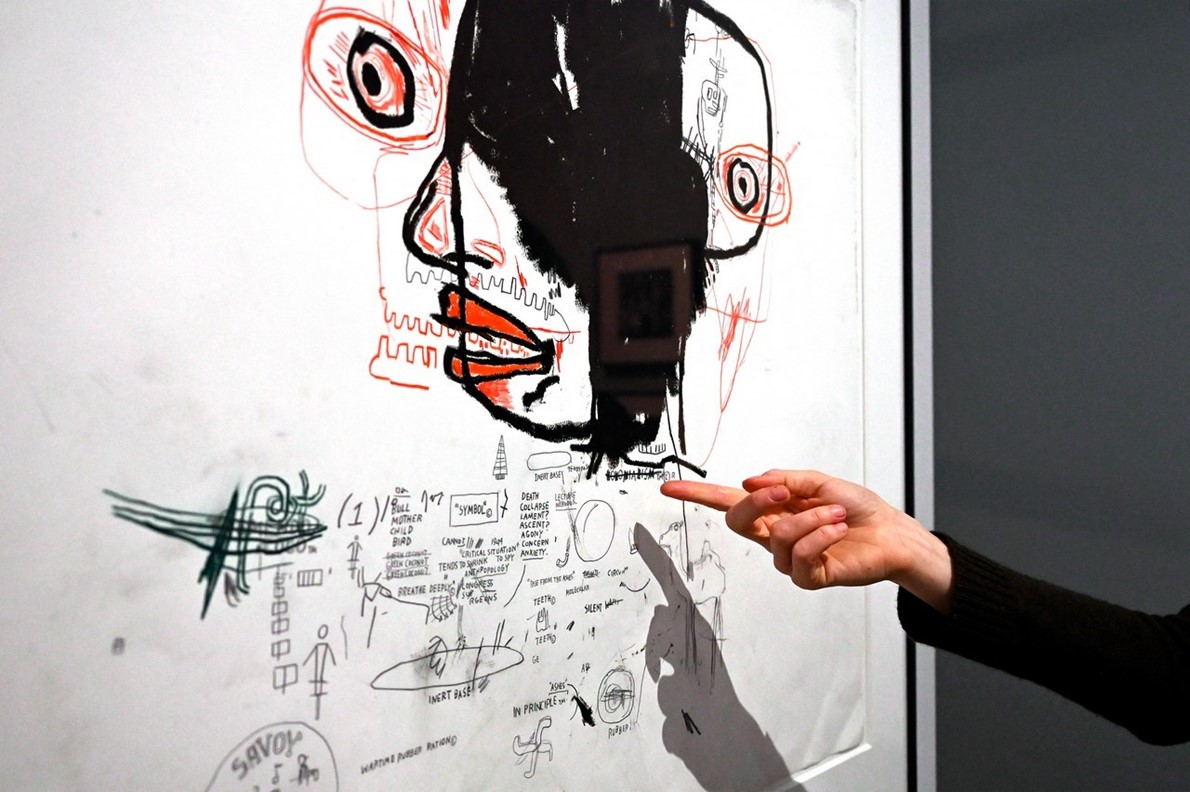ROME — Hidden on the backs of canvases or
scrawled on scraps of paper, doodles have allowed artists down the ages, from
Michelangelo to
Picasso, to test, explore, and unleash their creativity.
اضافة اعلان
Rome’s
Villa Medici is showcasing this long-ignored
facet of artistic production in a new exhibition spanning the period from the
Renaissance to the present day.
Entitled “Scribbling and Doodling — From Leonardo da
Vinci to Cy Twombly”, the unusual collection of nearly 300 original works
ranges from playful and whimsical to transgressive and political.
It brings to light delightful discoveries never
intended for the public eye — with some even in the most unexpected of places.
The wooden panels of the majestic “Triptych of the
Madonna” by Giovanni Bellini conceal a world of drawings on the back “that have
nothing to do with the front”, Francesca Alberti, one of the show’s curators,
told AFP.
On close observation, one can distinguish
overlapping figures sketched onto the raw wood, one wearing a bishop’s miter
and grimacing grotesquely.
“What we show in this exhibition is a whole series
of drawings where the artist’s hand has been liberated.”
 A visitor points to “Untitled”, a 1985 drawing by US painter Jean-Michel Basquiat, at the exhibition “Scribbling and Doodling: From Leonardo da Vinci to Cy Twombly” (Gribouillage - Scarabocchio. Da Leonardo da Vinci a Cy Twombly) on March 17, 2022 at the Villa Medici, The French Academy in Rome. (Photo: AFP)
Kids’ drawings
A visitor points to “Untitled”, a 1985 drawing by US painter Jean-Michel Basquiat, at the exhibition “Scribbling and Doodling: From Leonardo da Vinci to Cy Twombly” (Gribouillage - Scarabocchio. Da Leonardo da Vinci a Cy Twombly) on March 17, 2022 at the Villa Medici, The French Academy in Rome. (Photo: AFP)
Kids’ drawings
Whether on the walls of
artists’ workshops, underneath frescoes, or in the margins of other drawings,
the doodles and sketches include out-of-proportion figures, crude renditions of
heads and bodies, comical caricatures and wobbly lines, scribbles, and
hatchings.
These
“experimental, transgressive, regressive, or liberating graphic gestures”, as
the catalog describes them, are not subject to the rules and constraints of
academic art and call to mind children’s doodles.
“It took me a lifetime to learn to draw like them,”
Pablo Picasso said of the freshness and creativity of children’s art.
Less rigid and more spontaneous, the works represent
the hidden side of the artists’ talent, plunging the visitor into the heart of
the creative process.
The exhibit deliberately ignores chronology and
happily mixes eras, proposing new connections between Renaissance masters from
Leonardo da Vinci and Michelangelo to modern and contemporary artists like
Jean-Michel Basquiat, Jean Dubuffet, Pablo Picasso, and Cy Twombly.
‘Putin out’
Displayed in the villa’s
wide, gently rising staircase, originally built to accommodate horses, “a
dialogue between Renaissance drawings and contemporary drawings” plays out,
with 16th-century sketches juxtaposing doodles produced four centuries later.
A “Madonna and Child” by the Mannerist Taddeo
Zuccari, who lived from 1529 to 1566, “decomposes and unravels into a whole
series of scribbled lines as if, in fact, the artist’s hand was completely
free”, Alberti said.
These sketches and doodles were important to the
artists, Alberti explained, as they allowed them to “release the tension
accumulated while drawing”.
“You also need to free yourself from drawing to be
able to draw again with the same energy,” she said.
Visitors to the exhibition are themselves invited to
unleash their inner creativity in a charcoal grey room, with chalk provided.
Current events have inspired many of the scribblings
visitors have left on the walls. The slogans “Putin out!” and “Long live peace”
appear next to a depiction of Ukraine’s yellow and blue flag.
Read more Culture and Arts



